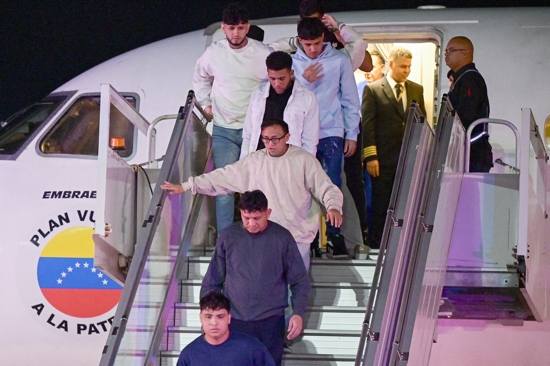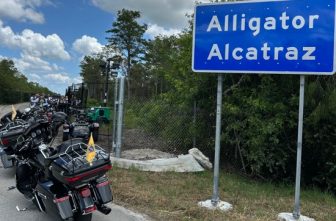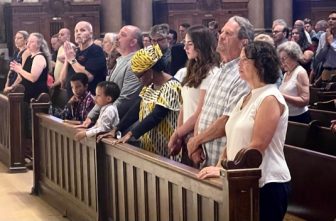
The U.S. Supreme Court on May 30 allowed the Trump administration to end deportation protections for more than 500,000 immigrants from Cuba, Haiti, Nicaragua, and Venezuela — typically Catholic-majority countries — while an appeal of the president’s order is still pending.
The Biden administration previously gave some migrants from those four countries the ability to legally enter the U.S. on humanitarian grounds, citing dangerous conditions in their countries of origin. Upon President Donald Trump’s return to the White House, his administration revoked that permission, prompting a legal challenge. A federal judge previously blocked the Trump administration from ending the program.
The unsigned order did not explain the majority’s rationale.
In a dissent, Justice Ketanji Brown Jackson, joined by Justice Sonia Sotomayor, rebuked the high court’s majority in the decision, arguing they “plainly botched” their assessment.
“It requires next to nothing from the Government with respect to irreparable harm,” Jackson wrote. “And it undervalues the devastating consequences of allowing the Government to precipitously upend the lives and livelihoods of nearly half a million noncitizens while their legal claims are pending.”
“Even if the Government is likely to win on the merits, in our legal system, success takes time and the stay standards require more than anticipated victory,” Jackson wrote.
Back in March, the U.S. Conference of Catholic Bishops called the termination of the CHNV program “counterproductive” to the Trump administration’s stated goals of promoting respect for the rule of law and reducing strain on U.S. communities.
“We urge the Administration to consider the adverse impact of this action on citizens and noncitizens alike, especially given the ongoing conditions in several of the implicated countries,” the USCCB’s spokeswoman Chieko Noguchi said in a statement provided to OSV News.
Catholic social teaching on immigration, explained by the USCCB, balances three interrelated principles — the right of persons to migrate in order to sustain their lives and those of their families, the right of a country to regulate its borders and control immigration, and a nation’s duty to regulate its borders with justice and mercy.
J. Kevin Appleby, senior fellow for policy at the Center for Migration Studies in New York and former director of migration policy for the USCCB, told OSV News, “It is particularly troubling that the administration is targeting immigrants who were invited into the US and entered legally.”
“They also come from countries with oppressive regimes and could be targeted for persecution when they are returned,” Appleby said. “It shows some hypocrisy, as the administration labels immigrants as criminals but still deports those who play by the rules.”
Appleby said individuals from other nations may have been treated differently.
“Let’s be honest, if this program served immigrants from Norway, Sweden, or Afrikaners in South Africa, the administration would not be seeking to terminate it,” he said.
In effect, the Supreme Court’s decision means the Department of Homeland Security can revoke the protected status for these individuals while the 1st U.S. Circuit Court of Appeals weighs an appeal of the order itself.
That court’s ruling remains pending.
Kate Scanlon is a national reporter for OSV News covering Washington.




